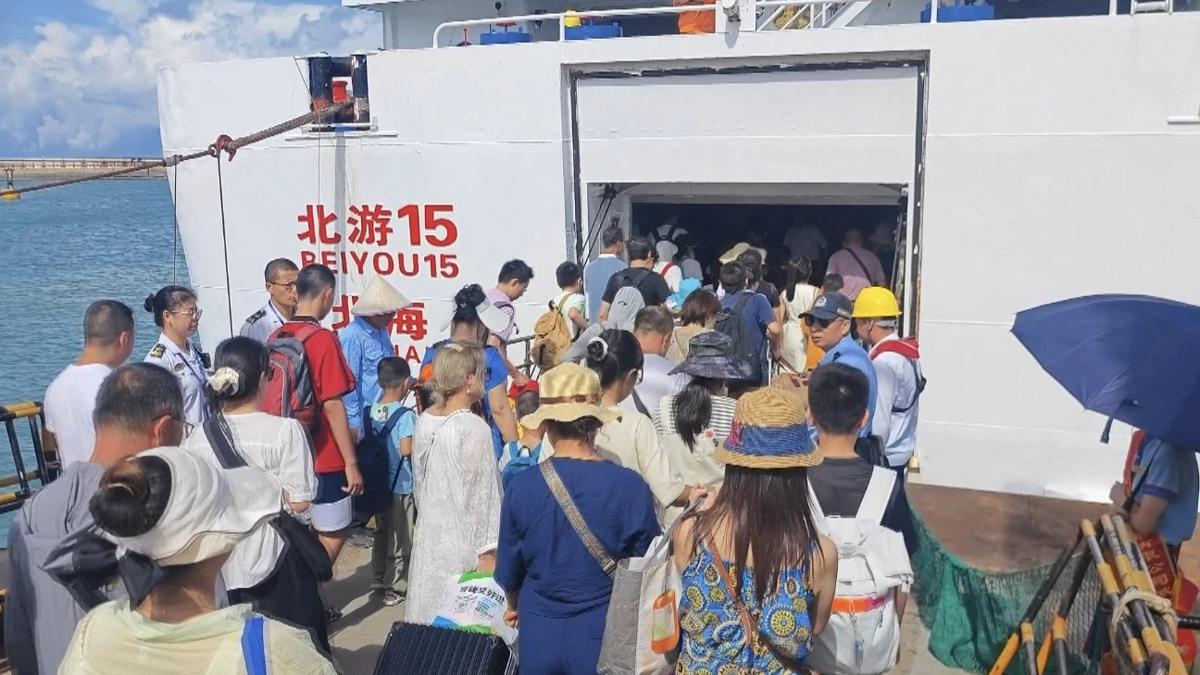
Typhoon Prapiroon brought rainstorms and strong winds to South China's Guangxi Zhuang autonomous region on Tuesday morning, triggering train suspensions and scenic spot closures.
Services for 32 high-speed trains were suspended or adjusted, 20 passenger ferry routes were halted, and coastal scenic spots were temporarily closed.
READ MORE: Deaths rise in wake of flood disasters
Also on Tuesday morning, China's national observatory issued a blue alert for Typhoon Gaemi, which is expected to bring strong wind and heavy rain to the country's southern regions.
Typhoon Gaemi, the third typhoon of this year, was located 710 km southeast of Taiwan's Yilan County at 5 am on Tuesday.

It is forecasted to travel northwestward at a speed of 20 km per hour, with its strength likely to increase gradually.
READ MORE: Typhoon Prapiroon brings rainstorms, strong gusts to South China
According to Guangxi's meteorological bureau, Typhoon Prapiroon made landfall in Vietnam on Tuesday morning. Nearby cities in Guangxi, including Fangchenggang, Qinzhou, Beihai and Chongzuo, have all received heavy rain, with some areas facing torrential rain. Coastal regions witnessed strong winds and gusts.
The Guangxi Coastal Railway Company initiated a level IV flood control emergency response and a level IV typhoon defense emergency response starting Sunday morning.
The entire high-speed rail line from Qinzhou to Fangchenggang was suspended on Tuesday.
Beihai Silver Beach and its Expo Park successively announced closures on Monday, while the Bailangtan Scenic Area in Fangchenggang was also temporarily shut down. The reopening date will be announced later.
ALSO READ: HKO issues hot weather alert after cancelling all typhoon signals
Meanwhile, gales are forecasted to sweep parts of the East China Sea, the South China Sea, the Bashi Channel, the Taiwan Strait, the Beibu Gulf, as well as the coastal areas of Guangxi and Taiwan during the period, it said.
The center has urged local authorities to prepare emergency typhoon responses and remain on high alert for possible flooding and geological disasters.


